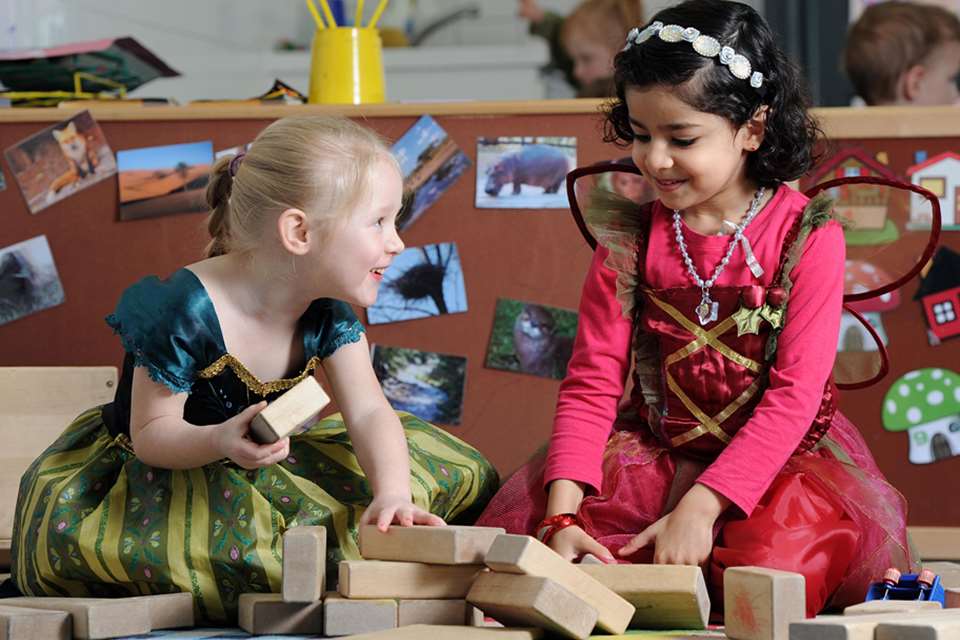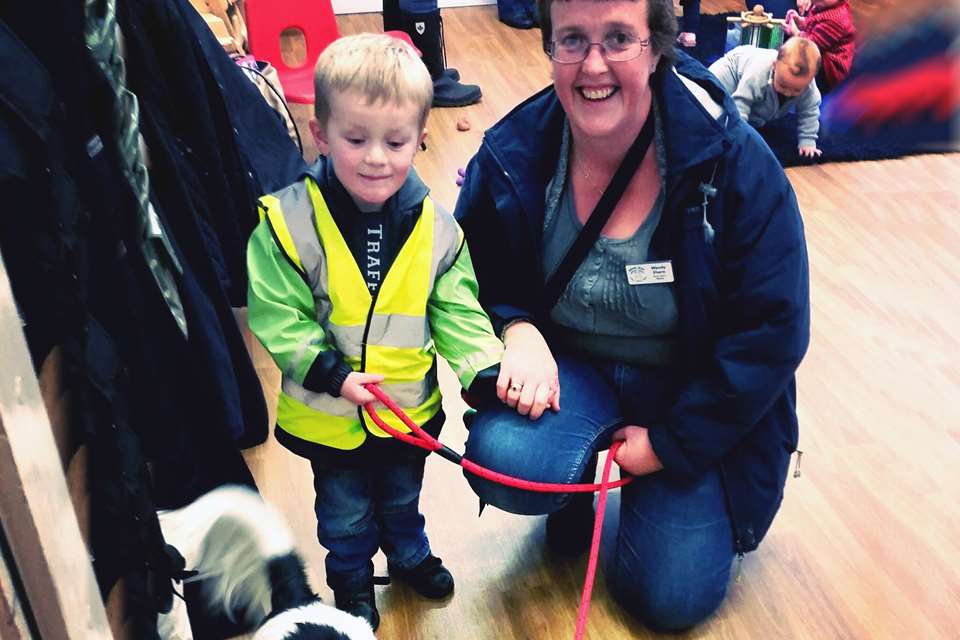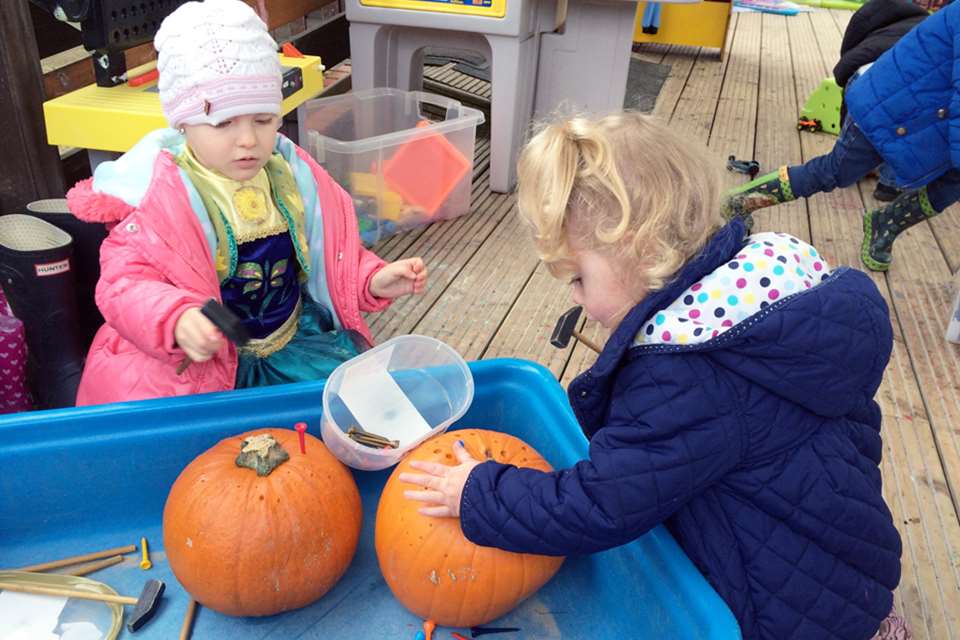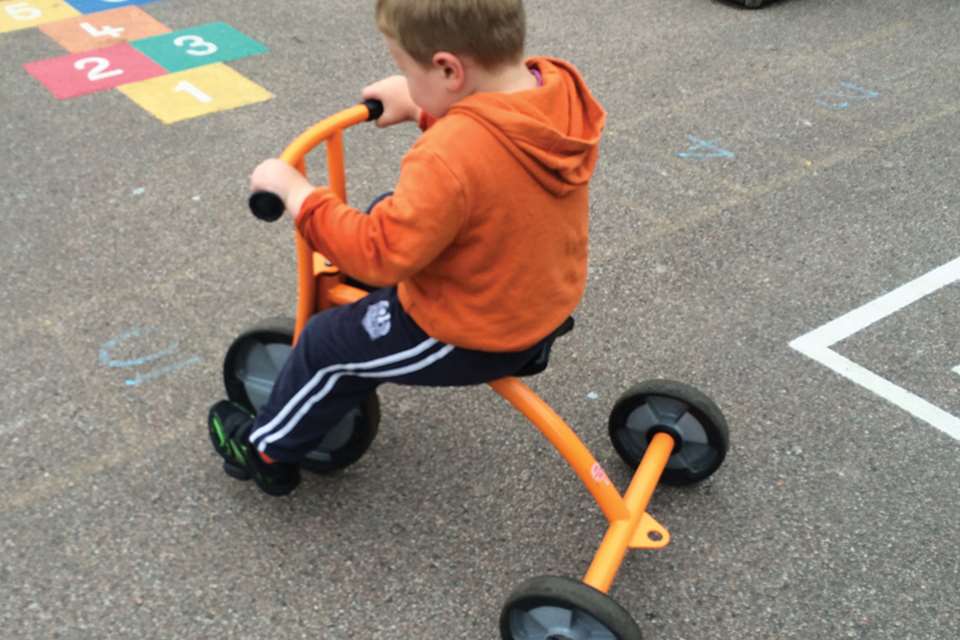Early Years Pupil Premium: Part 4 - Team effort
Charlotte Goddard
Monday, January 11, 2016
Whether it’s gin and tonic or apple crumble and custard, some things work better together than apart. By Charlotte Goddard

Some early years providers are finding they can get more from their EYPP funding by combining it. Collaborative working also has other benefits: nurseries overcoming suspicions to help each other with common challenges and to share ideas.
Sharing funding can be challenging. ‘Settings seem to find this difficult, I think it maybe due to the competition element,’ says Caroline Eaton, EYPP Project lead at Early Education.‘ They seem to like getting together but often wait to hear what others have to offer. Another challenge is timeliness – many settings are receiving EYPP funding relatively late on in the term, which doesn’t leave a lot of time to make group decisions. However, some providers may already be members of early years networks, and can use these structures to identify common issues affecting their EYPP-eligible children and possible shared interventions. Early Education has created 15 Learning Together About Learning local networks as part of its Department for Education-funded project. Not all have gone so far as to pool funding, but all are sharing information and ideas.
Nursery chains too are finding that pooling funding across their settings can lead to better value for money. David Wright, owner of Paint Pots Pre-School and Nursery, says there are around 800 children registered across all its settings, but only around 12 are receiving EYPP, so pooling budgets across the chain makes sense. ‘We have received EYPP funding for very few of our children, despite our best efforts to encourage all parents to apply. We know that we have many more eligible families but it has proved difficult to get them to complete theapplication or to provide us with their NI number,’ he explains. ‘We have now amended our own nursery application form to request national insurance numbers on registration. ’The Southampton-based chain decided to use its annual in-service training day next year to equip staff across the group with the resourcesand training to roll out and deliver the BoogieMites music programme. ‘We decided to use our funding to improve staff support for the development of children’s speech and language in general, and to build their capability in helping those children with language delay,’ says Mr Wright.
Boogie Mites training explores the neurosciencethat shows music boosts brain develop ment, and shows staff how to use music activities to promote specific EYFS learning outcomes, and increase engagement and wellbeing. Resources include online songs and music, which aim to develop listening skills. Cuts to local authority training budgets have made buying in training provision an attractive option, according to Early Education. When the Government introduced EYPP, it suggested that providers could pool funds to employ an early years teacher to work across settings, but this approach has not been popular, with nurseries reluctant to commit to paying salaries with fluctuating funding. The logistics of employment contracts across numerous settings have also proved challenging. A more workable approach might be for groups of providers to ‘buy in’ time from specialist workers already employed by one of their number, such as a speech and language therapist. It is helpful to consider:
? The size of the partnership – how many settings should be involved?
? The timeframe – is this a one-off partnership or a more long-term one?
? The specific expectations arising from the partnership.
? How roles and responsibilities might be divided.
? How much funding each partner will contribute and what they will receive for that input.
? How the impact of the partnership and spend will be evaluated.
Collaboration does not have to be a big deal, however. Ms Eaton suggests smaller, more informal partnerships can work equally well.
CASE STUDY: THE AMBLESIDE CHILDREN'S CENTRE, WOKINGHAM
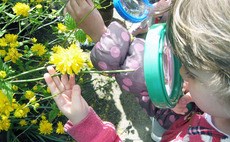 In Wokingham and Reading, children’s centres, nurseries and schools have pooled their EYPP budgets to pay for staff training. The Ambleside Children’s Centre leads a network of settings brought together by Early Education to support each other with EYPP spend. ‘We meet up once a term to talk about challenges we have and to share best practice,’ says Philip Armstrong, head of centre. Settings identified speech and language development as an issue for EYPP-eligible children and others. In response to these shared concerns, Ambleside decided to host a training session equipping staff to deliver I Can’s Early Talk Boost programme, a nine-week intervention for three- and four-year-olds with delayed language development. The course was recommended by the speech and language therapist based at Ambleside.
In Wokingham and Reading, children’s centres, nurseries and schools have pooled their EYPP budgets to pay for staff training. The Ambleside Children’s Centre leads a network of settings brought together by Early Education to support each other with EYPP spend. ‘We meet up once a term to talk about challenges we have and to share best practice,’ says Philip Armstrong, head of centre. Settings identified speech and language development as an issue for EYPP-eligible children and others. In response to these shared concerns, Ambleside decided to host a training session equipping staff to deliver I Can’s Early Talk Boost programme, a nine-week intervention for three- and four-year-olds with delayed language development. The course was recommended by the speech and language therapist based at Ambleside.
The training, which took place in late November, cost £450 per setting for resources, plus an extra £20 for additional staff, and was attended by nine providers, both network members and others. There was also a cost of £700 for the trainer, which was met by Early Education. ‘It seems expensive but, when you think about it, it is a child and a half’s worth of funding,’ says Mr Armstrong. ‘On their own, many settings would not have accessed the training. There was a nice mixture of PVIs and schools together – one benefit of that is it allows PVIs to learn from schools about how they have used Pupil Premium in the past, but also schools can learn about what works in early years.’
As this kind of financial collaboration was new to most of the settings involved, Mr Armstrong says it was important to reassure providers about the cost and content of the training. ‘It can sound like a lot of money, but when you break it down and reassure people about the evidence behind it, they are enthusiastic,’ he explains. ‘It helps that I Can is so well known. The benefit of using EYPP funding on this kind of training, for delivering a specific programme, is that you then have something significant which can keep on running in the future.’
Ambleside currently has 14 eligible children, around 11 per cent of the three-and-four-year-olds on its roll. not all of its EYPP money has been pooled, with some spend focused on well-being. ‘We ran baseline assessments on all the children using the Leuven scale, which rates emotional wellbeing and involvement,’ says Mr Armstrong. ‘We ran some cooking activities and trips to the shops, not just for the EYPP children but all those who were scoring a bit low on wellbeing. The cooking and recipes go home with the children, and we have seen quite a difference in their scores and in parental engagement.’ Mr Armstrong is also working with one looked-after child’s social worker to access play therapy.
After the Christmas break, settings that attended the training day will meet up again to share their experiences, and the speech and language therapist will also offer support to training attendees in the spring term. Mr Armstrong believes collaboration between the settings will continue. ‘Before now, it would have been difficult for settings to put their money together, but through this project we have got quite close,’ says Mr Armstrong. ‘We have regular meetings to find out how things are going, and if anyone has got a common need. It may be we can’t find the solution ourselves, but we are part of a teaching school alliance and could ask them if they have seen appropriate practice or resources. It is good to have the opportunity to go along and hear that some of the challenges people are facing are the same; also to share good practice – it is nice to be able to [pinch] everyone’s ideas.’


